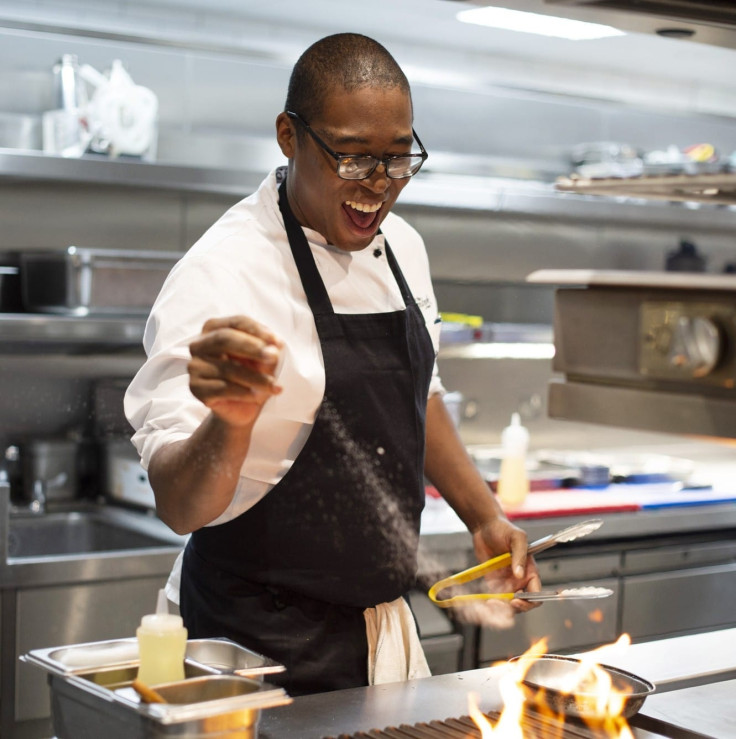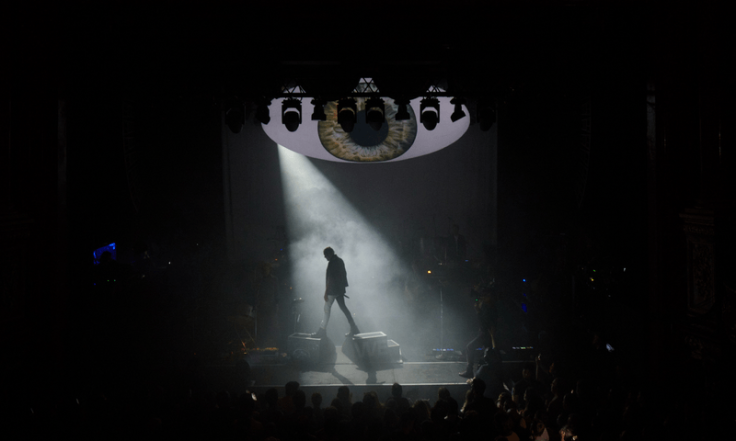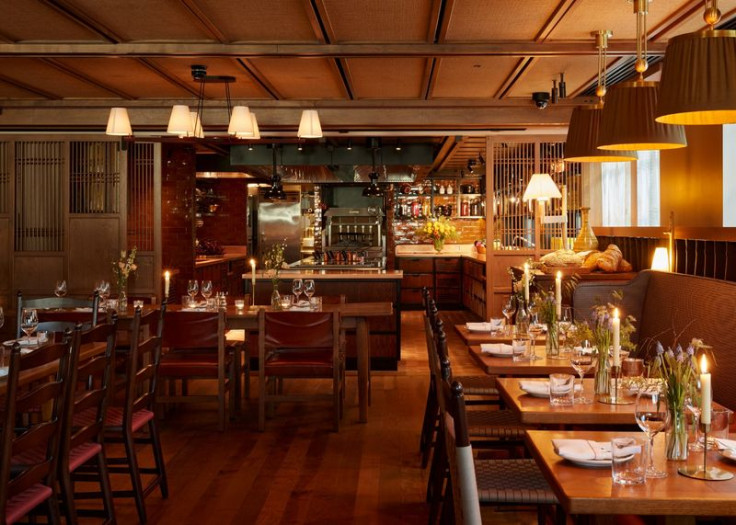Kieran Edwards: Reflecting On A 'Still Young' Career Spanning Hotel Catering And Restaurants
I spoke to Kieran Edwards, as he reflected on working in diverse catering environments, and his current Head Chef role - his second – at the House of Koko.

Kieran Edwards is currently Head Chef of the Stage Kitchen at the House of Koko, a members club attached to the iconic KOKO - a performance venue in London's East End.
KOKO counts Idris Elba as one of its recent on-stage acts. Its diverse upcoming performances include Mel C of the Spice Girls as well as newer talents such as G-Flip, better known to some as the spouse of the reality television star Chrishell Stause from Selling Sunset.
As we begin our conversation around Edwards' career trajectory – in particular, focussing on what it takes to succeed in the hotel industry, he dives straight into a recent anecdote.
He was thrown into a last-minute mad dash to take over an event, he explains.
"Koko hosted an event for Hennessy (cognac). A guest chef was invited to cook for the event, but had to pull out at the last minute."
The event was the launch of Hennessy White in the UK. The label, which has previously only been sold in the Caribbean, has now been launched at Harrods in the UK.
Edwards recalls, "I had one week to come up with a Caribbean theme menu, work out the food order, and execute. So I came up with a menu over half a day and priced it. I picked things that I know."
That kind of pressure is unlikely to be most people's idea of fun, but it is what makes Edwards thrive.
The resulting dishes, and the event by extension, were a resounding success. Naturally, I asked Edwards to share the menu:
- Jerk chicken
- Salt fish fritters
- Curry goat
- Rice and peas
- Coleslaw
"It was just good quality food in a fairly relaxed atmosphere - a supper-club vibe," he recalls.
Edwards, who is in his second head chef role, has 18 years in the industry under his belt - both in London and Sydney. At 36, he has ascended to the top of the ladder swiftly, working in both hotels and restaurants along the way.
His diverse experiences make him well-qualified to compare and contrast life in a hotel versus a restaurant and shed light on what he thinks leads to success in the industry.
He describes The House of Koko as a "cross between a hotel and a restaurant". Membership includes priority access to performances, social events, workspaces and socialising spaces, including bars, restaurants and private events venues.
Specifically, catered events are a big part of a hotel offering - and Koko is no different to hotels in this regard.
In his opinion, chefs develop preferences of working style: "Most chefs prefer one over the other: either traditional restaurant service or functions and prep-work."
The latter, he explains, is more traditionally hotel territory.
Although he has preferred restaurant service most of his career - "I like the adrenaline and the pressure" - that is changing. He refers to the Hennessy event, with the type of creativity, and yes, pressure involved - which makes it rewarding for him.
The scale of events at big hotels or venues like the House of Koko can be immense.
Hotels: A Game of Scale
Edwards has also worked as a Sous Chef at The Landmark Hotel, one of London's oldest luxury hotels. Here he was at the 2AA Rosette Winter Garden restaurant set within the towering glass-roofed atrium at the centre of the Victorian-era building.
As a Sous Chef, Edwards aided other parts of the operation as well, as and when needed.
He recalls breakfast service at the hotel, saying: "500 covers for breakfast, but it was always handled well. I must credit the management for that."
He also recalls a wedding with almost 100 covers catered by the hotel. The three-course sit-down meal was served by an assembly line of chefs, from the hotel's Executive Head Chef down to apprentices.
He reflects on the differences in dynamics in hotels versus restaurants: "In a hotel, you have more manpower. Pay is often superior to restaurants as well. In hotels, oftentimes, you can get more done with a bit less pressure."
At the same time, hotel kitchens operate on a bigger scale, with multiple outlets to serve, 24-hour room service, and events catering – with a main kitchen often catering to many, if not all, of these needs.
Edwards reflects: "In hotels, you have to be a bit more organised – with big functions (events) and round-the-clock service, you have to ensure you are fully stocked all the time."

He contrasts this to restaurants, where chefs can limit orders of a menu item for lunch or dinner service if, for instance, it proves to be very popular. At a hotel, when an event of 200 is counting on a pre-decided menu, or reputation is staked on 24-hour room service, this is less acceptable.
Edwards explains: "In a restaurant, I might have 10 portions of the beef for lunch, trimmed, seared, ready to go. For whatever reason – our beef order didn't come in on time perhaps - I can say, right, that's all I have. And I'll just get more on (to be prepped) in the evening. (You) cannot do that in a hotel."
One of his most memorable professional experiences was at the Roux at the Landau, a restaurant attached to the Langham Hotel in Central London.
The Roux at the Landau functions much like a stand-alone a la carte fine dining venue - which is the case at many hotel fine dining restaurants across London.
"It was insane," he recalls, "but in a good way. It was very intense - we used to think (of the Head Chef): 'is he ever going to stop pushing us?!' But looking back, it was good - teaching you the proper way."
He expands on this last part around teaching – a theme we returned to a number of times as we pored over Kieran's rapid upward trajectory in the world of fine dining.
"We got in whole animals and broke them down; (the head chef) got whole fish and we learned to fillet it. When we had mastered something, he would move on to the next thing.
"And it got to the point where he could throw anything at us."
Slipping Standards? New Challenges in the Industry
Kieran laments that today, he sees some senior chefs letting things go. "(Roux at the Landau) was not (like I have seen in recent years): not 'today someone chopped an onion wrong, but let's just go with it.' No. It was, 'Do it again!'"
He shares more fond memories of that time – of new skills he acquired, but also of the wonderful team dynamic.
"We used to get whole hares weekly from France - for a hare black pudding which was a two-day job. That in itself was a challenge because we needed to plan the prep right so that it was done in time for service, starting two days in advance.
"The hare came in with fur, shot in the head," he emphasises with obvious passion. "We got in whole pigeon; We made sauces from scratch."
By this, he means even the sauce base of demi-glace which is based on gelatin from animal bones, which establishments sometimes buy in, was made in-house.
He reminisces about the team with great affection: "We were all really good friends with each other. Even on the day off (Sunday), even on Saturday night – we were out together."
That is remarkable considering that the kitchen was only off on Sundays and the team worked doubles every day. This means that each chef covers both lunch and dinner service - whereas in most establishments, the team is larger and chefs have days of single shifts as well, and typically two days off.

"The head chef was so demanding, we were just used to running around to get it done. No one there was a superstar," he says, probably with a touch of humility, given the standard of the establishment in question, "we all pitched in and did our best."
This strong rapport likely went a long way to determining the success of the team – as a kitchen brigade is not unlike a sports team, in that the success of the whole depends on coordination of the various parts.
By the time he got to the Sous Chef level, Kieran says he focussed more on mentoring and helping out junior staff, which he emphasises is part of the job. At the same time, he laments that he has seen some drop in standards recently.
"I feel the skill of chefs has dumbed down," he says. He explains that whilst there is a positive move to dial down unprofessional attitudes that ratchet up the pressure unnecessarily, he believes there is also less dedication put in.
"It has not dramatically dropped, but you can notice it. Some compromises in standards that were not acceptable when I was training are now more common.
"When I was a Chef de Partie, I knew how to cook meat, fillet a fish, make stocks, cook a steak to a certain doneness - not that you have to be the best in the world at it, but that you know it."
He opines he now sees more gaps than before in that basic store of knowledge. Part of it is down to senior chefs' varying levels of commitment to teaching - he feels lucky to have had good mentors.
He recalls the post-covid reopening of the hospitality sector when he was head chef at a high-end restaurant. He recalls there were not enough trained chefs on the market. The high-pressure situation meant it was hard to "be picky" at all times. That famous onion not chopped right – that might have had to be ignored from time to time just for the kitchen to survive.
What he shared is an example of a growing challenge within the UK hospitality sector – due to a multitude of factors, including Brexit, COVID-19, and a dearth of skills-based education provision in the UK, people have exited the industry and there is a skills gap.
So, how does he do it? I wonder. There isn't a simple answer.
"I don't think I was 'built to do it'. I just worked in places where you found a way to do it. If you can't do it, then you leave, and you don't come back. I just don't want to be the next person to look stupid in front of everyone or let people down. And when you work with people who care as much as you do, you don't want to let the person next to you down."
© Copyright IBTimes 2025. All rights reserved.






















